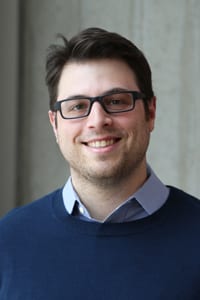The Cantor lab is jointly affiliated with the Morgridge Institute for Research and the Department of Biochemistry at the University of Wisconsin–Madison.
Our guiding hypothesis is that conventional models and methods have together masked key insights into understanding human cell physiology and drug efficacy. We test this through a variety of approaches at the interface of biology and engineering – integrating tools in biochemistry, molecular biology, metabolomics, functional genomics, and chemical genetics. We also have a strong interest in building and using tools that more faithfully model environmental contributions to human cell biology. Our overall goal is to advance the current understanding of how human cells facilitate their growth and how environmental factors influence this process – with a particular focus on blood cancers and normal immune cells. Ultimately, we hope to transition these insights into new strategies for (blood) cancer therapy that have a greater likelihood of successful translation.

